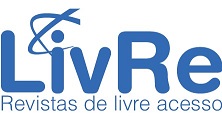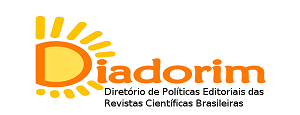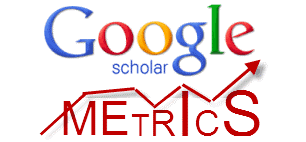O MÉTODO (AUTO)BIOGRÁFICO
Sua constituição e a produção de conhecimento
DOI:
https://doi.org/10.70860/rtg.v13i29.17275Schlagworte:
(auto)biografia, ferramenta de pesquisa, formação docente, narrativa, processo formativoAbstract
O método (auto)biográfico é uma ferramenta valiosa para pesquisa e formação, permitindo que os indivíduos revelem suas trajetórias de vida, aprendizados e promovendo (auto)reflexão e transformação. Este artigo teve como objetivo explorar o método (auto)biográfico, sua composição e contribuição para quem o utiliza. Utilizando a pesquisa bibliográfica, o trabalho sistematizou ideias de teóricos na área, apresentando as potencialidade e desafios do método nas ciências humanas e sociais e no campo da Educação. A revisão mostrou que o método é auto formativo, relevante para aquisição de competências e habilidades. Conclui-se que além de ser uma ferramenta de pesquisa, o método (auto)biográfico é um instrumento de formação de conhecimento que aprofunda a compreensão do desenvolvimento pessoal.
Literaturhinweise
ABRAHÃO, Maria Helena Menna Barreto. As narrativas de si ressignificadas pelo emprego do método autobiográfico. In: ? Tempos, narrativas e ficções: a invenção de si. Porto Alegre: EDIPUCRS, p. 149-170, 2006.
ANGELOU, Maya. I Know Why the Caged Bird Sings. New York: Random House, 1969.
ANZALDÚA, Gloria. Borderlands/La Frontera: The new mestiza. 4thedition. San Francisco: Aunt Lute Books, 2012.
BARREIRA, M. M.. A ABORDAGEM PÓS-METAFÍSICA E CONVERSACIONAL DO SELF EM RICHARD RORTY. Ágora: Estudos em Teoria Psicanalítica, v. 25, n. 3, p. 26–33, set. 2022. DOI: https://doi.org/10.1590/1809-44142022003004
BOURDIEU, Pierre. A distinção: crítica social do julgamento. São Paulo: Edusp; Porto Alegre, RS: Zouk, 2007
BRAGANÇA, Inês Ferreira de Souza; OLIVEIRA, Mariza Soares. Pesquisa-formação, abordagem (auto)biográfica e acompanhamento: (re)construindo pontes entre a universidade e a escola. In: CONGRESSO NACIONAL DE EDUCAÇÃO – EDUCERE, 10., 2011, Curitiba. Anais... Curitiba: PUCPR, 2011. p. 1380-1391.
BRIDGES, William. Transitions: Making sense of life's changes. Cambridge, MA.2 ed.2004.
BUTLER, Judith. Corpos em aliança e a política das ruas: notas para uma teoria performativa de assembleia. Tradução de Fernanda Siqueira Miguens. Rio de Janeiro, Civilização Brasileira, 2018.
CUNHA, Maria Isabel da. Conta-me agora!: as narrativas como alternativas pedagógicas na pesquisa e no ensino. Revista da Faculdade de Educação, v. 23, p. 185-195, 1997. DOI: https://doi.org/10.1590/S0102-25551997000100010
DAVIS, Angela. Angela Davis: An Autobiography, New York: Randon House, 1988.
DELORY-MOMBERGER, Christine. Biografia e Educação: figuras de l’indivíduo-projeto. Trad. Maria da Conceição Passeggi, João Gomes Neto e Luis Passeggi. São Paulo: Paulus; Natal, RN: EDUFRN, 2008.
ESTRELA, Carlos. Metodologia científica: ciência, ensino, pesquisa. [S. l.]: Artes Médicas, 2018.
FERRAROTI. Franco. Sobre a autonomia do método biográfico. In: NÓVOA, António; FINGER, M. (orgs). O método (auto) biográfico e a formação. Natal, RN: EDUFRN; São Paulo: Paulus, 2010.
FRANKL, Viktor E. Man's Search for Meaning. Pocket Books, 1971.
FREIRE, Paulo. Pedagogia da autonomia: saberes necessários à prática educativa. Local?: Editora Paz e Terra, 1996.
FRISON, L. M. B., DA VEIGA SIMÃO, A. M. Abordagem (auto) biográfica–narrativas de formação e de autorregulação da aprendizagem reveladas em portfólios reflexivos. Educação, v. 34, n. 2, p. 198-2006, 2011.
GALVÃO, Cecília. Narrativas Em Educação. Ciência & Educação, v. 11, n. 2, p. 327-345, 2005. DOI: https://doi.org/10.1590/S1516-73132005000200013
HOOKS, Bell. Feminism Is for Everybody: Passionate Politics. Cambridge, MA :South End Press, 2000.
JOSSO, Marie-Christine. Experiências de vida e formação. Natal, RN: EDUFRN; São Paulo: Paulus, 2010.
JOSSO, Marie-Christine. O corpo biográfico: corpo falado e corpo que fala. Educação & Realidade, v. 37, p. 19-31, 2012. DOI: https://doi.org/10.1590/2175-623621805
MARTINS, R. M., ANUNCIATO, R. M. M. Caminhos de aprendiz de professora: processos identitários em uma comunidade de aprendizagem online. Educação em Revista, v. 34, p. x-y, 2018. DOI: https://doi.org/10.1590/0102-4698172625
MARTINS, Rosana Maria. Aprendendo a ensinar: as narrativas autobiográficas no processo de vir a ser professora. Tese (Doutorado em Educação) - Universidade Federal de São Carlos. São Carlos, 2015.
MOITA, Maria da Conceição. Percursos de formação e de trans-formação. In: NÓVOA, A. (org.) Vida de professores. 2. ed. Portugal: Porto, 2000.
NÓVOA, A., FINGER, Matthias. O método (auto) biográfico e a formação. 2 ed. Natal: EDUFRN, 2014.
NÓVOA, António. Formação de professores e profissão docente. In: NÓVOA, António. Os professores e a sua formação. Publicações Dom Quixote, 1992.
PASSEGGI, Maria da Conceição. Memórias, memoriais: pesquisa e formação docente. Natal, RN: EDUFRN; São Paulo: Paulus, 2008.
PINEAU, Gaston. As histórias de vida em formação: gênese de uma corrente de pesquisa-ação-formação existencial. Educação e pesquisa, v. 32, p. 329-343, 2006. DOI: https://doi.org/10.1590/S1517-97022006000200009
PIZZANI, L., DA SILVA, R. C., BELLO, S. F., HAYASHI, M. C. P. I. A arte da pesquisa bibliográfica na busca do conhecimento. RDBCI: Revista Digital de Biblioteconomia e Ciência da Informação, v. 10, n. 2, p. 53-66, 2012. DOI: https://doi.org/10.20396/rdbci.v10i1.1896
RICOEUR, Ricoeur. Tempo e narrativa – Tomo 1. Tradução de Constança Marcondes César. Campinas: Papirus editora, 1994.
SOUZA, Elizeu Clementino. Autobiografias, histórias de vida e formação: pesquisa e ensino. [Porto Alegre]: EDIPUCRS, 2006.
YOGANANDA, Paramahansa. Autobiography of a Yogi. Self-Realization Fellowship Publishers, 1978.
Downloads
Veröffentlicht
Zitationsvorschlag
Ausgabe
Rubrik
Lizenz
Copyright (c) 2023 Tocantinense Journal of Geography

Dieses Werk steht unter der Lizenz Creative Commons Namensnennung - Nicht-kommerziell - Keine Bearbeitungen 4.0 International.
Revista Tocantinense de Geografia vergütet keinen Autor für die Veröffentlichung seiner Texte. Der Inhalt der in dieser Zeitschrift veröffentlichten Texte liegt in der Verantwortung der Autoren.








.png)












